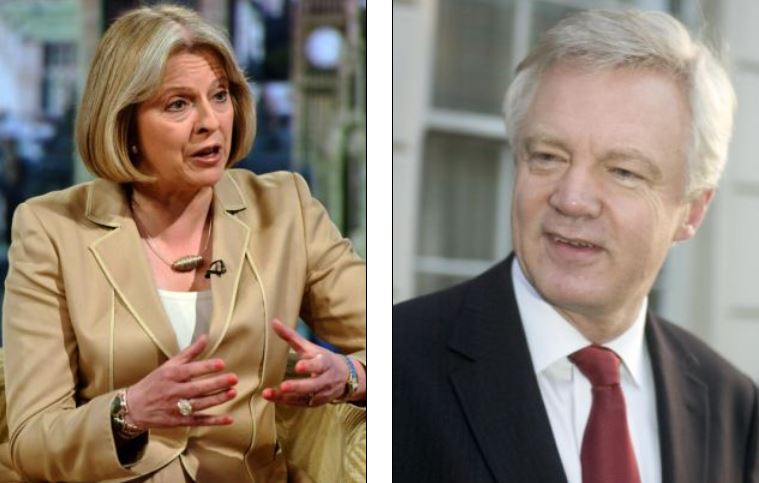Published by Daily Mail
 In the midst of euro-economic turmoil, distracted by Leveson and the tedious texts and tweets of Culture Secretary Jeremy Hunt, the Government is finalising its plans to monitor and log every website you visit and store every IM, tweet and text you send. The police already have draconian extra-judicial powers to intercept your email and telephone communications, but the surveillance state is an ever-encroaching beast of unquenchable omniscience, scattering all feeble libertarian squeaks in its wake.
In the midst of euro-economic turmoil, distracted by Leveson and the tedious texts and tweets of Culture Secretary Jeremy Hunt, the Government is finalising its plans to monitor and log every website you visit and store every IM, tweet and text you send. The police already have draconian extra-judicial powers to intercept your email and telephone communications, but the surveillance state is an ever-encroaching beast of unquenchable omniscience, scattering all feeble libertarian squeaks in its wake.
In opposition, David Cameron categorically opposed Labour’s Big Brother agenda: he rejected national ID cards out of hand and objected to security requests for 90-detention without charge. Indeed, he said quite unequivocally: “If we want to stop the state controlling us, we must confront this surveillance state.”
In office, however, he is proving to be as centralising and authoritarian as Tony Blair and New Labour ever were, all under the guise of needing to prevent acts of terrorism and smash paedophile rings. So, if you’re practising shooting zombies on ‘Left for Dead’ or knocking off a few vanity years on Facebook, beware: we are all now suspects; your every move is being monitored.
There is, of course, a legitimate philosophical debate to be had in the balance between individual liberty and state assertions of power in order to protect people from harm. But when Theresa May says: “I just don’t understand why some people might criticise these proposals,” she appears to have forgotten 13 years of policy development, not to mention 300 years of conservative-liberal philosophy.
Setting aside the practicability (highly contested) of logging billions of interactions, and the colossal cost to the taxpayer (likely to be hundreds of millions of pounds), there are very many thoughtful, intelligent and reasonable individuals who hold the sincere and strongly-held belief that this Conservative and Liberal Democrat coalition is pursuing a policy which is un-conservative, illiberal and, in the final analysis, profoundly undemocratic. Former shadow home secretary David Davis said it is all ‘incredibly intrusive’, which is something of an understatement.
Apparently, one of the ‘safeguards’ being built into the proposals is for the oversight of a ‘Communications Surveillance Commissioner’; another is the ability for members of the public to appeal to an ‘Investigatory Powers Tribunal’. Despite these manifestly Orwellian developments, Theresa May said: “I have no doubt the conspiracy theorists will come up with some ridiculous claims about how these measures are an infringement of freedom.”
Is it only conspiracy theorists who use the word ‘Orwellian’? If David Davis is a conspiracy theorist, then so am I. Presumably, the Prime Minister is no longer one, having left on the Opposition benches his ‘ridiculous claims about how these measures are an infringement of freedom’. Presumably both the Prime Minister and Home Secretary have forgotten that the state has shown itself incapable and incompetent time and again in the effective management of mass data.
And both the Conservative Party and the Liberal Democrats appear to have forgotten what they promised in their 2010 manifestos. David Cameron pledged ‘to restore our civil liberties’. Under that precise heading, he said: ‘We will scale back Labour’s database state and protect the privacy of the public’s information.’ Nick Clegg talked similarly of ‘restoring your freedoms’ and of protecting ‘personal privacy’. He pledged to ‘end plans to store your email and internet records without good cause’, because ‘we need to restore the rights of individuals in the face of encroaching state power, in keeping with Britain’s tradition of freedom and fairness’.
To be called a ‘conspiracy theorist’ for expressing legitimate concerns about the extent of state intrusion into our private affairs reduces the whole debate to puerile insult hurling: it is a slur designed to isolate and ridicule one’s critics and opponents in order to shut down all discussion and debate. By deploying the term against people like David Davis, the Home Secretary shows herself to be not only unreasonable but devoid of cogent political argument. Conspiracy is, in any case, no mere theory: it is as old as man’s desire to acquire power in the pursuit of community harmony and societal governance. And when you consider that politicians tend to pledge a myriad of assurances in their manifestos, only to plot and intrigue to do completely the opposite once in power, the conspiracy becomes manifest.
